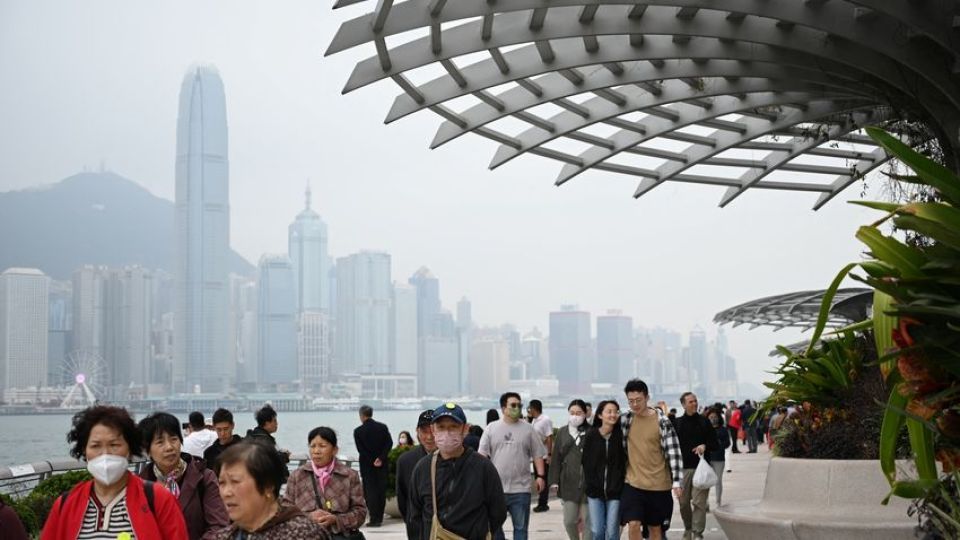
Orange News: 2023 was the hottest year in human history, the Hong Kong Observatory issued eight red rainstorm warnings and two black rainstorm warnings. The economic impact was significant, with Typhoon Saola and the associated black rainstorm resulting in HK$1.9 billion in gross insurance claims, mainly affecting property damage and motor businesses.
The government issued its Climate Action Plan 2050+, committing to achieving carbon neutrality by 2050 and allocating HK$240 billion over the next 15-20 years to combat climate change. However, to date, there is no publicly available data showing the expenditure by year and activity, and no reporting of progress against the plan. In the current period of economic turbulence, a clear plan that includes spending principles plays a very important role in strengthening Hong Kong’s position as a leading hub for green technology and sustainable finance, as the plan will reinforce confidence in Hong Kong’s private sector and attract international investors.
The world is experiencing a much faster rate of global warming, and as the national climate policies are a priority for the central government, the Hong Kong SAR government must take the lead in changing our system at an equally rapid pace. The Finance Secretary is currently consulting the public on the upcoming Budget 2024-2025, and he must seize this opportunity to unlock the potential for combating climate change while assisting Hong Kong in benefiting from opportunities arising from the low-carbon transition. There are six specific areas that the Secretary can focus on.
First, the government should leverage our financial industry’s might to fund Just Energy.
Transition Partnerships (JETP), which enable the transition to low-carbon electricity generation by phasing fossil fuels in developing countries. Without our government’s participation in JETPs, Hong Kong’s role as a global financial centre would be weakened. The Hong Kong Monetary Authority (HKMA) should take the lead in facilitating Hong Kong’s financial services participation in JETPs by issuing a ‘JETP Bond’. Such a bond would be designated as a ‘Transition Bond’ explicitly earmarked for funding JETPs.
Second, China’s transition towards a low-carbon energy mix is accelerating, through massive investments in renewable energy, carbon pricing and carbon trading. As a result, we foresee an increased demand for renewable energy in the Greater Bay Area (GBA). Therefore, our government should take a proactive role in enabling Hong Kong power companies to actively generate affordable renewable energy to remain competitive among the GBA. The Hong Kong Investment Corporation Limited’s GBA Investment Fund should invest in high-emission industry projects to encourage improved resource allocation and efficient resource utilisation, thereby advancing the green transition in the GBA.
Third, the sheer size of Hong Kong’s building sector makes its energy efficiency important to the city’s future competitiveness and hence the strength of its economy. The Financial Secretary’s upcoming budget should implement efficiency measurement, disclosure and taxation to spur energy saving. Energy efficiency of large commercial buildings should be visible through public reporting and funding should be provided to facilitate such change. This will not only support Hong Kong as an innovation hub of PropTech but also will benefit the development of ‘Green Finance’ as the performance information can be used as a metric and benchmark for its advancement.
Fourth, private vehicles contribute to road congestion, affecting economic efficiency and increasing the amount of fuel burnt. Actions should be taken to encourage people to take low-carbon forms of transport. The government must expand low-carbon bus trial programs, discontinue the “one-for-one” electric vehicle replacement scheme to reduce policy support for private car ownership and increase license fees, leaded petrol tax and toll fees to limit private car usage, with the more polluting vehicles needing to pay a higher license fee to operate.
Fifth, The World Resources Institute reported that every $1 invested in climate change adaptation yields $2 to $10 in long-term cost savings. Hong Kong should align itself with global trends, invest in infrastructure improvements, and actively accelerate the adoption of nature-based solutions to withstand the increasing number of extreme weather events, by establishing a fund that promotes research and supports the implementation of such solutions in Hong Kong.
Sixth, by being at the forefront of the shift towards a circular economy, the government would create economic opportunities for decades to come. We believe Hong Kong should adopt best practices from around the world to reduce both the consumption of natural resources and greenhouse gas emissions. It would also lessen landscape and habitat degradation and help limit biodiversity loss. For instance, there are only 45 GREEN@COMMUNITY currently, with an average of 170,000 people sharing one, which is insufficient to build a circular economy. The government can expand the GREEN@COMMUNITY locations to ensure accessibility for all residents.
Former NASA scientist James Hansen alerted the world about the dangers of climate change approximately 40 years ago. Recently, he warned that due to global warming caused by the burning of fossil fuels, and amplified by the El Niño climate event, our planet will experience a temperature increase of 1.7°C higher than the pre-industrialisation average in May. He further cautions that unless purposeful actions are taken to change the planet’s energy balance, the world will surpass the 2°C threshold in the 2030s.
The future of our planet depends on actions taken before 2030, meaning our government only has six years left to secure a better future for Hong Kong where economic opportunities abound in a city not longer known for its hazy sky but as a green innovative oasis.
Originally published on Orange News on 18 Jan 2024. Written by Lawrence Iu.